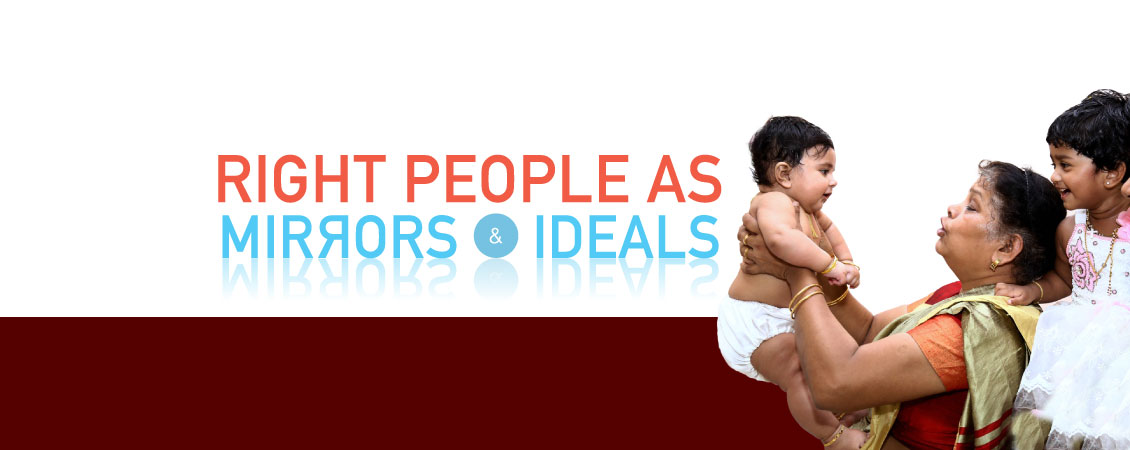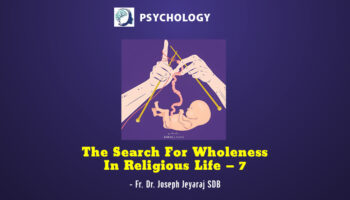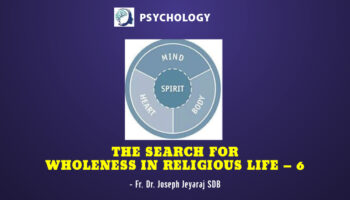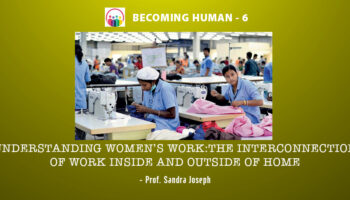Jyoti is 11 months old – the time when her parents are eager to see her take her first steps. One day her mother takes Baby Jyoti outside into the courtyard, puts her down on the grass, holds her by the hand and coaxes her to take a step or two forward. Jyoti obliges.Holding on to her mother’s outstretched fingers, she takes not one, but a few steps. She then leaves the mother’s hand and takes a few more faltering steps forward – on her own – as the mother watches proudly with delight. Baby Jyoti then stops and looks back at her mother. She sees her mother’s eyes light up as her baby girl walks for the first time.
What Baby Jyoti just experienced is “mirroring” – an experience necessary for healthy emotional development according to Self Psychology, another major contemporary psychological theory.
Why was Baby Jyoti looking back? To see if her mother had recognized her great achievement. Fortunately for her, the mother did recognize it and affirm it, as she beamed back at her, sharing in her excitement.
Mirroring happens when someone who matters to us holds up a metaphorical mirror in which we can see our “grandiosity” – the feeling of being capable, wonderful, beautiful, etc. reflected back to us.
Mirroring is provided not only by a responsive care-giver. It can also come from a responsive external environment that provides us recognition and affirmation.
Self Psychology, founded by Heinz Kohut, holds that we need frequent mirroring experiences to develop a strong, healthy sense of self – a “cohesive self.” Mirroring experiences are needed especially for developing ambitions and goals.
Mirroring alone is not sufficient. We also need people around us to whom we can look up and feel connected to and count on to provide strength and assurance. In Self Psychology parlance this is the need for “idealization.” When we have such people around us, we feel stronger and more confident and develop a positive self-image. We shine in reflected glory.
This need to feel connected to important people is reflected, for example, in our eagerness to take “selfies” with such people.. We experience some pride in our connection.
The advertising industry thrives on this idealization need we have. So, you want to be beautiful like Madhuri Dixit or some other movie star? Use the shampoo or soap she uses! You want to feel connected to Sachin Tendulkar or some famous cricketer? Just drink Pepsi or Coke that they endorse.
The one ad that sums up idealization for me is the one built around the great basketball star Michael Jordan. The ad is very simple, but very powerful. The image is that of Michael Jordan ‘dunking’ a basketball. He is literally in the air, dressed in his bright red Chicago Bulls outfit and wearing the ‘Air Jordan’ sneakers (one of the most expensive of the Nike range) named after him. And the jingle (the audio) simply says, “To be like Mike!”
And the young Afro-American kids dreaming of being a basketball star “like Mike” will buy the expensive Air Jordan Nike sneakers. They want to be like Mike and the sneakers, they believe, will do it for them.

We all need people to idealize, look up to, admire and feel connected to. Our self cannot exist as a strong, cohesive structure necessary to generate an experience of wellbeing without the presence of such idealizable figures around us.
Such idealizing experience helps us, especially as a developing child, to feel vicariously more powerful and more resourceful. It is as if we walk proudly in the shadow of the admired other. The qualities admired in the idealized other become internalized and strengthens our sense of self. These idealizing experiences are necessary, especially, to develop values and ideals.
In Self Psychology these mirroring and idealizing experiences are known as “Selfobject” experiences, that is, self-other experiences. These selfobject experiences refer not just to these important functions that significant persons in our lives served and continue to serve, but more especially how we experience these functions or lack of them.
Lack of or failures in mirroring and idealization selfobject experiences result in what Self Psychology calls “narcissistic wounding”– a great sense of hurt to and betrayal of self.
Imagine what Baby Jyoti in the example given at the beginning of this article would feel if the mother were not to notice her great achievement, nor indicate some delight in it. Something would have collapsed within her.
Failures in idealization happen not only when we grow up without idealizable persons in our surroundings, but also when the ones we idealize let us down or betray us. An example:
John was determined to do well in his MA examination. He wanted to impress his father, whom he idealized. He worked very hard. And his hard work paid off. John not only did well, but also secured a rank in the University. He felt very proud of his accomplishment and was looking forward to sharing his success with his father.
However, that night John showed his results to his father. His father merely said a casual “Good,” and retired to his room. John felt crushed. Something in him collapsed. Not only had his father not provided him a mirroring experience, but the man John idealized so much had deeply disappointed him.
Such narcissistic wounding, when experienced frequently, fragments our sense of self, affecting our healthy development and undermines our capacity for healthy relationships.
Lack of healthy selfobject experiences can lead to blocks in healthy development of the self. We get stuck at a particular stage of development and behave in immature ways. For example, we may be forty years old, but behave like a 15-year old. This is known as “developmental arrest.”
John’s experience tells us an important fact. We need mirroring and idealizing self-object experiences not only in childhood but also as adults. We all want to be recognized, our accomplishments noticed and appreciated – have our grandiosity reflected back to us. Even as adults we want to feel connected to important people.
Fortunate are we when we have people around us to mirror our “grandiosity” and who embody qualities that we admire, that is, persons we can idealize.
The Self Psychology concepts of selfobject experiences like mirroring and idealization have significant implications not only for our own emotional growth, but also for parenting and religious formation.
Can you see them?
Introspective Exercise.
- Sit quietly for a while. Stay in touch with whatever was evoked in you as you read this article.
- Look back over your life and recall examples of mirroring and idealizing selfobject experiences. Be aware of feelings evoked in you as you do so.
- Focus now on an experience of mirroring which has had a significant impact on you. Who is the person involved in this mirroring? What is the influence that this mirroring has had on your development and the way it continues to impact you?
- Who is the person you idealized the most? What are the reasons for this idealization? What is the influence that this idealization has had on your development and the way it continues to impact you?
- Recall an incident (or incidents) in which you experienced narcissistic wounding.
- How has this wounding impacted you and continues to impact you today?
- Stay for a while with the answers to these questions, and the feelings that came over you as you introspected. Spend some time praying, talking to God about them and listening to what God tells you.
– Rev. Dr. Jose Parappully, SDB, is the Founder-Director of Sumedha Centre, which runs courses and retreats in psycho-spiritual integration. He also does individual and group therapy.
To subscribe to the magazine Contact Us





